- Why
K extends 1 does not evaluate to true ?
Because TS should be consistent with pure javascript property access algorithm. See MDN docs.
property names are string or Symbol. Any other value, including a number, is coerced to a string. This outputs 'value', since 1 is coerced into '1'.
Despite the fact that arrays/tuples are indexed by number, all their indexes are stringified under the hood of JS engine. This is why const result = arr['1'] // 2 is perfectly valid from TS point of view.
All number keys are de-facto strings.
See this exmaple:
declare var record: Record<number, string>
const result = record['2'] // string
const result2 = record[2] // string
const result3 = record['hello'] // expected error
How can I get only the array keys? - this is a duplicate of this answer
Can you explain why you're doing:
T extends ${number} instead of T extends number?
Example:
type FilterNumbers<T extends PropertyKey> = T extends `${number}` ? T : never
T extends ${number}`` - literally means if T extends a stringified number.
Here you have another one example:
type StringNumber<T extends `${number}`> = T
type Test = StringNumber<'42'> // ok
type Test1 = StringNumber<'-0.3'> // ok
type Test2 = StringNumber<`${typeof NaN}`> // ok, but in fact is a drawback
type Test3 = StringNumber<`01`> // ok, but also drawback
type Test4 = StringNumber<'hello'> // error
PLayground
